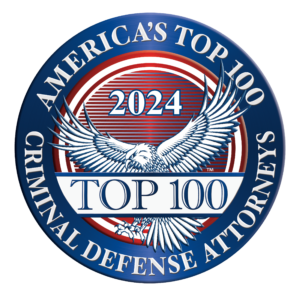What is a Klein Conspiracy?
THE DEFRAUD PRONG OF THE CONSPIRACY STATUTE
The general federal conspiracy statute under 18 U.S.C. § 371 states that it is a federal crime for two people to conspire to defraud the United States or any of its agencies for any purpose. The statute’s defraud prong makes it criminal to conspire to defraud the United States. A case alleging a violation of the defraud prong of the federal conspiracy statute is typically called a Klein conspiracy. This type of conspiracy was named after an important decision that came out of the 2nd Circuit from the case of United States v. Klein. Klein was a case where the defendants conspired to cheat the United States out of tax money in connection with a whiskey selling business. This and other types of conspiracy cases that interfere with lawful governmental functions such as collecting taxes have become known as Klein conspiracies.
THE ELEMENTS OF A KLEIN CONSPIRACY
Klein conspiracy cases are defined by agreements by two or more people to interfere or obstruct lawful government functions through deceit, craft, or trickery in order to defraud the United States. A Klein conspiracy can be made by an agreement to cheat the United States government of money or property in some way. The four elements in proving a Klein conspiracy are:
- the accused entered into an agreement with another,
- the agreement involved obstructing a lawful function of the government,
- by dishonest or deceitful means, and
- one overt act to further the conspiracy occurred.
It is important to note that someone can be charged with a Klein conspiracy without being charged of violating any other separate law. You don’t have to actually be charged with tax evasion to be charged with conspiring to commit tax evasion for instance. The United States government doesn’t even have to show that they were defrauded out of a single dollar in order to pursue Klein conspiracy charges. A federal prosecutor does not have to show that the conspiracy’s goal is independently illegal or even show that the means used to achieve the goal were independently illegal in order to secure convictions under a Klein conspiracy. While Klein conspiracies are most prevalent in larger tax crimes, the wording of the defraud prong of the conspiracy statute allows the government to go after people for a wide array of other activity.
HOW DOES THIS AFFECT ME?
Any actions by two or more people to defraud the government in some way can easily lead to Klein conspiracy charges. Any other activities pursuant to an agreement to impair one of the countless activities of the United States government can also lead to Klein conspiracy charges. Put simply, there are a myriad of ways that a federal prosecutor can pursue charges under the defraud prong of the federal conspiracy statute because of the seemingly limitless potential of the law itself. While there have been cases that challenge the defraud prong of the conspiracy statute as being too broad, this is the law as it stands today. The defendants in Klein were evading tax money through a complex scheme of specific billing manipulation activities of their whiskey selling business. An increasingly wide variety of cases have been charged as Klein conspiracies in the 50+ years since Klein itself was decided. If you are facing a criminal charge for a Klein conspiracy or being investigated for one, then it is imperative that you seek the advice of an experienced federal criminal defense attorney as soon as possible.





